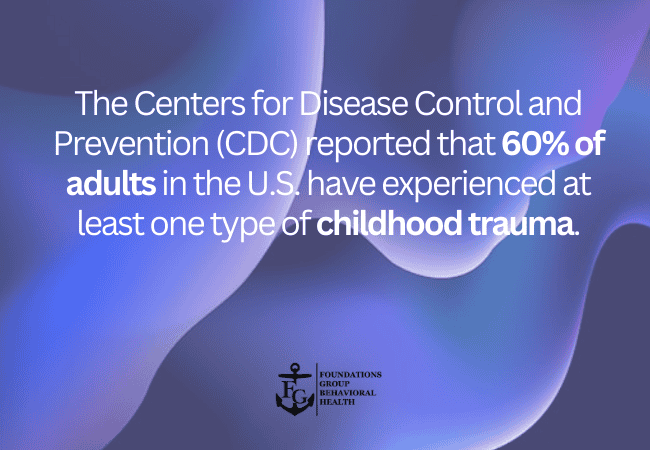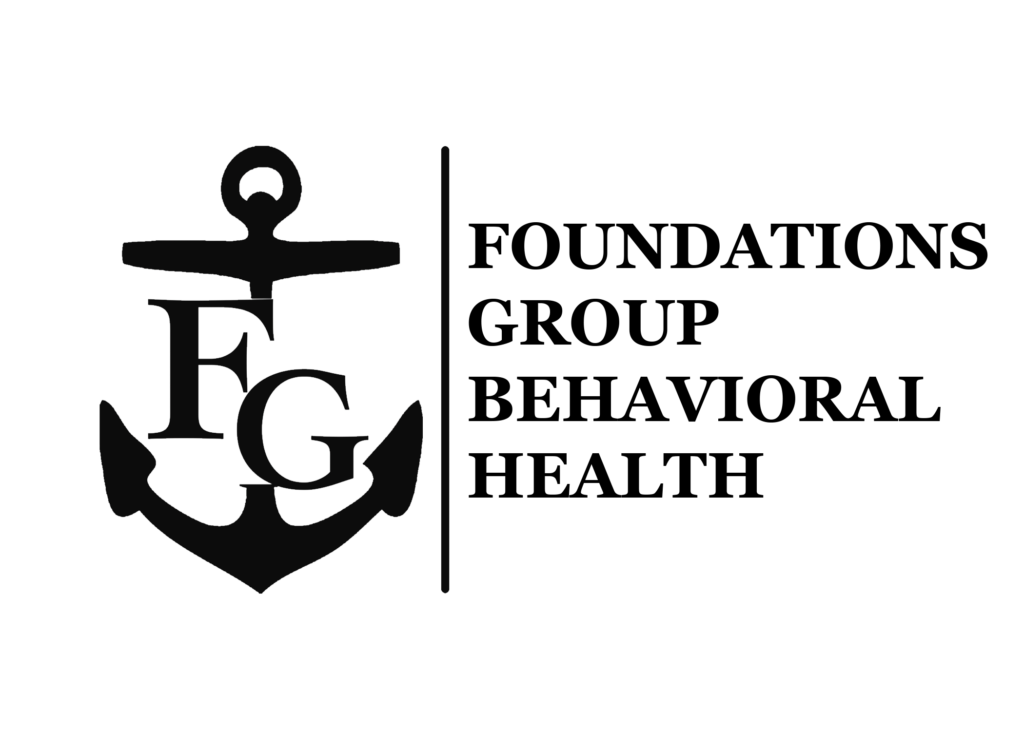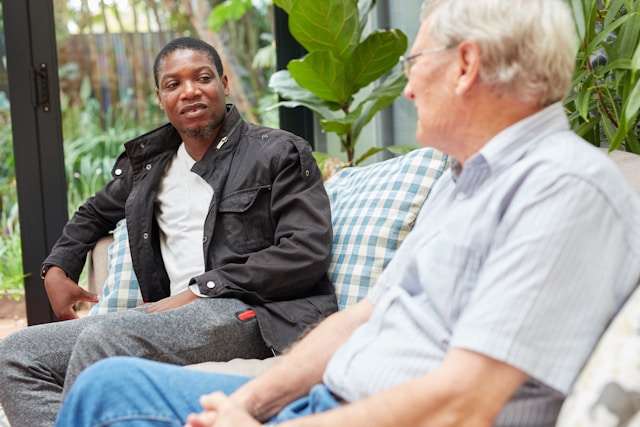Childhood trauma can have profound and lasting effects on a person’s mental and emotional well-being. In some cases, these traumatic experiences are buried deep within the subconscious mind as a defense mechanism—known as repressed memories—to protect the individual from emotional distress. However, these repressed memories can emerge later in life, often manifesting in unexpected ways, leading to a variety of mental health challenges. As adults, individuals may struggle with a range of symptoms that point to unresolved childhood trauma, even if they don’t consciously recall the events.
At Foundations Group Behavioral Health, we specialize in treating the long-term effects of childhood trauma, offering services such as Psychiatric Day Treatment and Outpatient Mental Health Programs to support recovery. In this blog, we will explore the signs and effects of repressed childhood trauma, how it can impact mental health, and how comprehensive treatment can help individuals reclaim their lives.
What Is Repressed Childhood Trauma?
Repressed childhood trauma refers to distressing or overwhelming experiences during childhood that are subconsciously blocked from the person’s conscious awareness as a way to protect them from psychological harm. While the mind may block memories of trauma to avoid the pain they cause, the emotions and stress tied to these events often remain buried beneath the surface.
Traumatic experiences during childhood can range from physical abuse, sexual abuse, and emotional neglect to witnessing violence or losing a loved one unexpectedly. Although these memories may not be easily accessible, the effects of unresolved trauma can significantly affect an individual’s emotional regulation, relationships, and overall mental health well into adulthood.
Key Signs and Symptoms of Repressed Childhood Trauma in Adults
- Mood Swings and Emotional Dysregulation
One of the most common signs of repressed childhood trauma is intense mood swings. Adults may experience unexplained feelings of anger, sadness, or irritability, often triggered by situations that appear trivial. Difficulty managing these emotions can also lead to emotional outbursts or periods of emotional numbness, where individuals feel disconnected from their feelings. - Low Self-Worth and Shame
Those with repressed trauma often suffer from low self-esteem. They may feel unworthy of love, success, or happiness, carrying feelings of guilt, shame, or self-blame. This can result in difficulties forming healthy relationships and engaging in self-destructive behaviors, as they might unconsciously believe they don’t deserve better. - Anxiety Disorders
Anxiety is a prevalent symptom of repressed trauma. Individuals may struggle with generalized anxiety, panic attacks, or intense worry about various aspects of their lives. Repressed trauma often triggers feelings of impending doom, even without clear cause, leading to physical symptoms like racing heart, sweating, or shortness of breath. - Depression and Withdrawal
Adults who experienced childhood trauma may experience persistent feelings of sadness and hopelessness. Depressive symptoms, such as low energy, sleep disturbances, lack of motivation, and social withdrawal, can be common. Over time, these feelings may deepen, leading to chronic depression that affects all aspects of daily life. - Difficulty in Forming Trusting Relationships
Individuals with repressed trauma often struggle with establishing or maintaining close relationships. The inability to trust others—whether family, friends, or romantic partners—can lead to isolation and alienation. These individuals may also display a fear of abandonment or be overly dependent on others for validation, leading to imbalanced relationships. - Physical Symptoms Without a Clear Cause
Repressed emotional pain often manifests as physical symptoms. Adults who have experienced childhood trauma may suffer from chronic headaches, digestive issues, back pain, or muscle tension, even though these ailments have no identifiable medical cause. These symptoms are often linked to the unresolved stress from trauma. - Behavioral Addictions
In an attempt to cope with the unresolved emotional pain from repressed memories, individuals may develop behavioral addictions. This could include substance abuse (alcohol or drugs), gambling, overeating, or engaging in compulsive behaviors as a means to numb their emotional turmoil. These behaviors often provide temporary relief but worsen the trauma over time. - Flashbacks and Intrusive Memories
Even though the memories of trauma may be repressed, they can still re-emerge unexpectedly. Flashbacks, nightmares, or intrusive thoughts may occur, especially during stressful times or in certain situations that remind the individual of their childhood trauma. These vivid memories can be overwhelming, causing significant emotional distress.
How Repressed Childhood Trauma Affects the Brain and Body
Repressed childhood trauma can have a profound impact on both the brain and the body. When traumatic experiences are too overwhelming for a child to process at the time, the mind often represses the memories as a way of protecting the individual from emotional distress. However, these repressed memories don’t disappear—they can resurface later in life, often in ways that affect mental and physical health.
At a neurological level, trauma can cause the brain’s stress-response systems to become dysregulated. The fight-or-flight response can become overactive, leading to heightened anxiety and stress reactions. Chronic activation of these stress hormones (like cortisol) can disrupt normal brain functioning, particularly in areas such as the hippocampus (responsible for memory processing), the amygdala (which processes emotions), and the prefrontal cortex (which regulates decision-making and emotional control). This dysfunction can make it more difficult for individuals to process emotions and recall memories associated with the trauma.
The body’s response to repressed trauma can be equally damaging. Many people with unresolved trauma experience chronic physical ailments, including muscle tension, digestive issues, headaches, and sleep disorders. The body “remembers” the trauma in the form of physical symptoms, leading to what’s commonly referred to as somatic complaints. Individuals may also be more vulnerable to developing chronic conditions such as heart disease or autoimmune disorders due to the prolonged stress and tension caused by repressed trauma.
The Role of Memory in Repressed Trauma
Memory plays a central role in the experience of repressed childhood trauma. When an individual undergoes a traumatic experience, the brain may repress memories in an attempt to protect the person from the emotional pain. This happens particularly with overwhelming or life-threatening events, where the brain may not be able to fully process the information at the time. Repressed memories are not lost but are pushed into the unconscious mind where they remain dormant until triggered.
Over time, repressed memories can resurface in various ways. They might come up in dreams, flashbacks, or during moments of extreme stress, as the brain attempts to make sense of unresolved emotional experiences. Some people may not even be aware that these memories exist until they are uncovered through therapeutic techniques like trauma-focused therapy, Cognitive Behavioral Therapy (CBT), or Eye Movement Desensitization and Reprocessing (EMDR).
Although the memories themselves may be hidden, the emotional impact of the trauma lingers. This is why individuals with repressed trauma often experience symptoms like anxiety, depression, emotional numbness, or unexplained physical symptoms. Accessing these memories in a safe, therapeutic environment is crucial for healing, as it allows the individual to process the emotions and gain insight into their present struggles.
The Psychological Impact of Repressed Trauma in Relationships
Repressed childhood trauma can deeply affect an individual’s relationships, especially in adulthood. The emotional scars from past trauma can shape how people interact with others, often creating patterns of unhealthy attachment and communication. Those who have repressed their traumatic experiences may struggle with trust, intimacy, and emotional vulnerability.
For instance, someone who experienced neglect or emotional abuse in childhood might have difficulty trusting others, even in adult relationships. They may also struggle to express their feelings or fear rejection, which can lead to avoidant attachment behaviors. In more severe cases, individuals with repressed trauma may experience emotional dysregulation, which causes them to overreact or shut down emotionally in response to relationship stressors.
Trauma survivors may also develop relationship anxiety, constantly fearing that their loved ones will abandon or hurt them, even if there is no reason for such concerns. They may unknowingly recreate patterns from childhood, such as staying in toxic relationships or experiencing difficulty setting healthy boundaries. Additionally, unresolved trauma can increase the likelihood of substance abuse or other maladaptive coping mechanisms, further damaging relationships.
Recognizing how repressed trauma influences relationship dynamics is the first step toward healing. Therapy can help individuals understand their emotional responses, heal attachment wounds, and learn healthier ways of connecting with others.

How Repressed Childhood Trauma Affects Mental Health
When trauma is repressed, it remains unresolved, often leading to a range of mental health disorders. The individual may experience symptoms of mental health conditions without understanding the root cause. Some common mental health disorders linked to repressed childhood trauma include:
- Post-Traumatic Stress Disorder (PTSD): Individuals with repressed trauma may develop PTSD, a mental health disorder triggered by traumatic events. Symptoms include flashbacks, nightmares, and hyperarousal (excessive alertness).
- Anxiety Disorders: Chronic anxiety, including generalized anxiety disorder (GAD) and social anxiety, can arise from unresolved trauma. These conditions are characterized by excessive worry, fear, and physical manifestations of anxiety.
- Depressive Disorders: Long-term depression, dysthymia, or even bipolar disorder can result from untreated trauma. Depression from repressed trauma may present as a constant feeling of sadness, helplessness, and a lack of interest in activities once enjoyed.
- Co-Occurring Disorders: It is common for individuals with childhood trauma to develop co-occurring disorders, where mental health issues like depression, anxiety, or substance use disorder occur alongside trauma-related symptoms. Treating both issues simultaneously in a Co-Occurring Disorder Treatment Program is crucial for long-term recovery.
How Repressed Childhood Trauma is Treated
Addressing repressed childhood trauma requires comprehensive and compassionate care. At Foundations Group Behavioral Health, we offer a range of treatment programs tailored to the individual’s needs. Our Trauma Disorder Treatment Program is designed to help clients process past experiences and develop healthy coping mechanisms. Key therapeutic approaches include:
- Cognitive Behavioral Therapy (CBT): CBT is a highly effective treatment that helps individuals identify negative thought patterns and replace them with healthier, more balanced ways of thinking. CBT is particularly effective in treating anxiety and depression resulting from repressed trauma.
- Eye Movement Desensitization and Reprocessing (EMDR): EMDR is a trauma-focused therapy that helps individuals reprocess traumatic memories through guided eye movements, enabling them to integrate these memories in a healthier way. This technique has been shown to be effective for PTSD and other trauma-related disorders.
- Psychiatric Day Treatment Programs: Our Psychiatric Day Treatment Program offers structured support for individuals struggling with trauma-related mental health challenges. Clients engage in therapy, psychoeducation, and group activities to promote healing and recovery in a safe, supportive environment.
- Half Day Treatment Program: This program provides individuals with the flexibility of attending therapy and support groups for half of the day, allowing them to engage in recovery while maintaining responsibilities at work or home.
- Trauma-Focused Therapy: This therapy is designed to directly address trauma and its effects, helping individuals confront their repressed memories in a controlled, therapeutic setting.
How Foundations Group Behavioral Health Can Help
At Foundations Group Behavioral Health, we specialize in providing comprehensive treatment for individuals who have experienced childhood trauma and are struggling with its lasting effects. Our Trauma Disorder Treatment Program is designed to help clients uncover repressed memories and process their emotions in a safe, structured environment. By addressing the root causes of trauma, we help individuals break free from the cycle of pain and build healthier emotional responses.
Our Psychiatric Day Treatment and Half Day Treatment Program options offer flexible, intensive care for individuals who need structured treatment during the day but are able to live at home. These programs incorporate evidence-based therapies like Cognitive Behavioral Therapy (CBT) and Trauma-Focused Therapy to help clients process trauma, build coping skills, and address any co-occurring mental health issues, such as anxiety or depression.
For those who need ongoing support, our Outpatient Mental Health Program is available to help individuals continue their recovery journey once they’ve completed more intensive care. Our team of compassionate professionals works with each client to create a personalized treatment plan tailored to their unique needs and goals.
Conclusion
Repressed childhood trauma can be incredibly difficult to confront, but acknowledging and processing these experiences is the first step toward healing. At Foundations Group Behavioral Health, we provide comprehensive care for adults struggling with the effects of unresolved childhood trauma. Our Trauma Disorder Treatment Program combines evidence-based therapies, such as CBT and EMDR, to support clients in overcoming the long-term effects of childhood trauma. If you or someone you know is struggling with repressed trauma, we invite you to reach out and explore how our Psychiatric Day Treatment and Outpatient Mental Health Programs can support the healing journey. Contact us today at 508.388.5324 to book your first session and begin your journey toward a more mindful future.
FAQ for Effects and Signs of Repressed Childhood Trauma in Adults
What is repressed childhood trauma?
Repressed childhood trauma refers to the emotional and psychological wounds from traumatic experiences that a child is unable to process at the time. These memories are pushed into the subconscious to protect the individual from emotional pain, but they can resurface later in life, often causing various psychological and physical symptoms.
How does repressed trauma affect the brain?
Repressed trauma can lead to imbalances in brain chemistry, affecting areas responsible for emotional regulation and memory processing. This dysregulation can manifest in anxiety, depression, and difficulties in forming healthy relationships, as well as increased vulnerability to physical health issues like chronic pain.
What are the signs of repressed childhood trauma in adults?
Common signs include emotional numbness, difficulty trusting others, intense emotional reactions, chronic anxiety, depression, PTSD, sleep disturbances, and somatic symptoms (such as headaches or chronic pain). These symptoms often result from the brain’s attempt to cope with unresolved emotional wounds.
Can repressed trauma affect relationships?
Yes, repressed trauma can significantly impact adult relationships. Individuals may struggle with intimacy, emotional vulnerability, trust, or fear of abandonment. They may also exhibit unhealthy attachment patterns or struggle with emotional regulation, which can create barriers to forming secure, fulfilling relationships.








